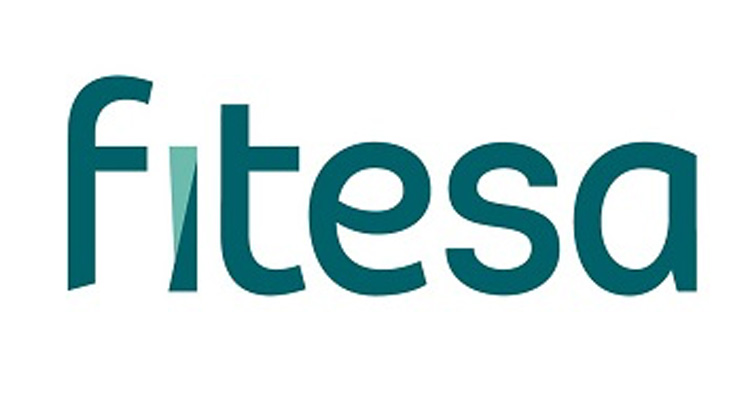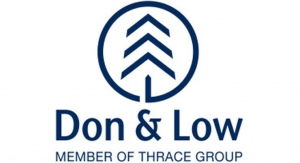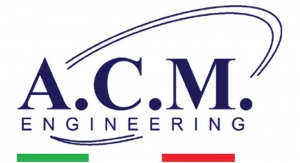09.02.21
Porto Alegre, Brazil
www.fitesa.com
2020 Nonwovens Sales: $1.13 billion
Key Personnel
Silverio Baranzano, CEO; Hal Singley, CFO
Plants
Gravataí, Brazil; Cosmópolis, Brazil; Lima, Peru; San Jose Iturbide, Mexico; Simpsonville, USA/SC; Green Bay, USA/WI; Washougal, USA/WA; Norrkoping, Sweden; Peine, Germany; Trezzano Rosa, Italy; Sulmona, Italy; Tianjin, China; Ras Al-Khaimah, UAE; Rayong, Thailand
Processes
Spunbond, SMS, bicomponent spunbond, meltblown, carded (chemical bonded, thermal bonded, air through bonded), airlaid, films, elastics, laminates and composites
Investment continues to be a priority for Fitesa. The Brazilian based manufacturer of spunmelt, spunlace and meltblown nonwovens continues to add new lines and make acquisitions to respond to the demand of its customers in the global hygiene market.
In October, Fitesa announced it would add a new multibeam Reicofil 5 line in Europe with start-up planned in the second quarter of 2023. The new machine will be installed in one of Fitesa’s current facilities in the region and will be equipped to produce Full High Loft and standard spunmelt products, using a variety of sustainable raw materials including bioPE and PLA.
“This line will be a state-of-the art machine capable of serving the growing demand for sustainable spunmelt products,” says Michael Baumgartner, Fitesa’s senior vice president for Europe & China. “Once the machine is online, we will ramp up production from our pilot lines which significantly increases our ability to supply the market with softer products and increased circular and green content produced locally in Europe.”
According to Fernanda Gastal, Fitesa’s vice president of Procurement and Marketing and head of the company’s ESG Committee: “This investment is part of our strategic direction that will contribute to change the sustainability profile of the spunmelt industry. It should be seen as one of three pillars where we believe we can make a significant impact: innovative technology offering, environmentally friendly raw materials and reduction of GHG emissions in our operations.”
Fitesa is an industry leader in sustainable products. The company has been producing nonwovens from biobased polymers since the early 2010s and was awarded for its 100% biobased spunbond materials. Fitesa Sweden recently received the ISCC Plus certification, which endorses the company’s ability to commercialize biobased and circular materials under the mass balance concept. “We feel responsible and capable of making a valuable contribution to the environment. Our expertise and innovation centers through the use of sustainable raw materials and processes add value to our customer’s initiatives,” says Anders Fogelberg, Global Safety, Quality, HSE and Management System global director, who spoke at Outlook Europe about choosing nonwovens based on the CO2 footprint throughout the product’s lifecycle.
Fitesa is also adding a state-of-the art Reicofil 5 spunmelt nonwovens line at its site in Simpsonville, SC, which was announced in January and scheduled for start up late next year.
Executives are describing the new machine as one-of-a-kind due to the unique versatility in producing differentiated materials for a wide range of applications and markets. One key feature is the capacity to convert bio and circular polymers into high quality and high productivity spunbond nonwovens.
“We have always said that Fitesa is a company created and managed for the long term,” says Mariana Mynarski, corporate marketing. “We are now starting a new round of investments that will have a significant impact in the sustainability profile of our asset base. These technologies will enable us to go beyond the biobased content and ‘drop-in’ solutions that have been available in the market so far, and to create a new layer of more sustainable spunmelt products, including circular polymers. This will support our customers in the increasing demand of sustainable content and carbon footprint reduction.”
In addition to the South Carolina investment, Fitesa announced a comprehensive expansion program in November 2020, which will add 55,000 tons to its global output. Included in this investment is adding a multibeam Reicofil line, which is scheduled to begin the commercialization process later this year in Cosmopolis, Brazil, making the site one of the most advanced spunmelt nonwovens lines in the region. Meanwhile, in the meltblown market Fitesa upgraded and redesigned one existing meltblown line and added a second state-of-the-art meltblown line to its site in Gravatai, Brazil, in spring 2020. Together, the two investments increased Fitesa’s production capacity in the region by 30,000 metric tons and tripled the company’s pure meltblown supply availability, fulfilling the rising demand from the healthcare and hygiene markets.
Fitesa has also added meltblown capacity in Trezzano Rosa, Italy, Peine, Germany and Simpsonville, SC, which came onstream in late 2020 and early 2021. These lines also contributed to Fitesa’s product portfolio for surgical masks and respirators.
The expansion of its meltblown market was a natural progression of Fitesa’s healthcare business and its position as a leader in the Latin American market. “Early in the pandemic we saw the opportunity to extend this expertise to the other regions where we operate,” Mynarski adds. “Nevertheless, in order to have the desired impact, the investment in five new meltblown lines was approved in record time, and all of them were in production by January 2021.”
In addition to these new line investments, Fitesa is increasing production volumes, modernizing assets and enhancing the flexibility of the current asset base. These efforts have added another 20,000 metric tons of spunmelt capacity which is split evenly between the U.S. and Europe, serving the healthcare and hygiene markets.
Fitesa is also adding a spunlace line to its site in Jacarei, Brazil. This site was acquired this site from Freudenberg in December 2019.
The investment will primarily serve current and new customers in the baby wipes market and is planned to start-up in the first quarter of 2022. The line is equipped with the customized Jetlace hydroentanglement unit and neXdry through-air-dryer from Andritz and will produce premium quality of spunlace roll goods. The line is designed to operate a variety of raw materials, including biobased, recycled and circular fibers.
“We have produced carded nonwovens for many years, and recently identified the potential for spunlace in Latin America,” Mynarski says. “Fitesa is committed in supplying nonwovens’ solutions to the hygiene and healthcare markets, and that means that we are open to explore new technologies as the opportunities arise.”
Meanwhile, in Thailand Fitesa completed work on a third spunmelt line at a site it acquired a majority stake in from CNC in July 2019. This multi-beam Reicofil line represented a reported $70 million investment from Fitesa.
In other acquisition news, in June 2020 Fitesa acquired Fiber Dynamics, a High Point, NC-based manufacturer of meltblown and carded nonwovens for disinfectant wipes, filtration, face masks, automotive, medical, hygiene and other industrial wipes. The acquisition strengthened Fitesa’s asset base to serve the healthcare market, especially the wipes segment, and the company expects to expand its role in these markets with additional investments in upcoming months.
Fitesa has also used acquisition as a vehicle to expand into adjacent markets to benefit its hygiene customers. In August 2020, Fitesa announced an agreement to purchase films maker Tredegar Personal Care, which expanded a films business purchased through the acquisition of Pantex in 2017.
“The acquisition of Tredegar) is another example of our willingness to explore new technologies to better serve the markets we operate in,” Mynarski says. “The acquisition of Tredegar Personal Care significantly expanded the global reach of our Films & Elastics business, initiated in 2017 with the acquisition of Pantex. Customers and suppliers have been extremely welcoming, and this business has fundamentally increased our understanding of the needs and trends of hygiene products.”
www.fitesa.com
2020 Nonwovens Sales: $1.13 billion
Key Personnel
Silverio Baranzano, CEO; Hal Singley, CFO
Plants
Gravataí, Brazil; Cosmópolis, Brazil; Lima, Peru; San Jose Iturbide, Mexico; Simpsonville, USA/SC; Green Bay, USA/WI; Washougal, USA/WA; Norrkoping, Sweden; Peine, Germany; Trezzano Rosa, Italy; Sulmona, Italy; Tianjin, China; Ras Al-Khaimah, UAE; Rayong, Thailand
Processes
Spunbond, SMS, bicomponent spunbond, meltblown, carded (chemical bonded, thermal bonded, air through bonded), airlaid, films, elastics, laminates and composites
Investment continues to be a priority for Fitesa. The Brazilian based manufacturer of spunmelt, spunlace and meltblown nonwovens continues to add new lines and make acquisitions to respond to the demand of its customers in the global hygiene market.
In October, Fitesa announced it would add a new multibeam Reicofil 5 line in Europe with start-up planned in the second quarter of 2023. The new machine will be installed in one of Fitesa’s current facilities in the region and will be equipped to produce Full High Loft and standard spunmelt products, using a variety of sustainable raw materials including bioPE and PLA.
“This line will be a state-of-the art machine capable of serving the growing demand for sustainable spunmelt products,” says Michael Baumgartner, Fitesa’s senior vice president for Europe & China. “Once the machine is online, we will ramp up production from our pilot lines which significantly increases our ability to supply the market with softer products and increased circular and green content produced locally in Europe.”
According to Fernanda Gastal, Fitesa’s vice president of Procurement and Marketing and head of the company’s ESG Committee: “This investment is part of our strategic direction that will contribute to change the sustainability profile of the spunmelt industry. It should be seen as one of three pillars where we believe we can make a significant impact: innovative technology offering, environmentally friendly raw materials and reduction of GHG emissions in our operations.”
Fitesa is an industry leader in sustainable products. The company has been producing nonwovens from biobased polymers since the early 2010s and was awarded for its 100% biobased spunbond materials. Fitesa Sweden recently received the ISCC Plus certification, which endorses the company’s ability to commercialize biobased and circular materials under the mass balance concept. “We feel responsible and capable of making a valuable contribution to the environment. Our expertise and innovation centers through the use of sustainable raw materials and processes add value to our customer’s initiatives,” says Anders Fogelberg, Global Safety, Quality, HSE and Management System global director, who spoke at Outlook Europe about choosing nonwovens based on the CO2 footprint throughout the product’s lifecycle.
Fitesa is also adding a state-of-the art Reicofil 5 spunmelt nonwovens line at its site in Simpsonville, SC, which was announced in January and scheduled for start up late next year.
Executives are describing the new machine as one-of-a-kind due to the unique versatility in producing differentiated materials for a wide range of applications and markets. One key feature is the capacity to convert bio and circular polymers into high quality and high productivity spunbond nonwovens.
“We have always said that Fitesa is a company created and managed for the long term,” says Mariana Mynarski, corporate marketing. “We are now starting a new round of investments that will have a significant impact in the sustainability profile of our asset base. These technologies will enable us to go beyond the biobased content and ‘drop-in’ solutions that have been available in the market so far, and to create a new layer of more sustainable spunmelt products, including circular polymers. This will support our customers in the increasing demand of sustainable content and carbon footprint reduction.”
In addition to the South Carolina investment, Fitesa announced a comprehensive expansion program in November 2020, which will add 55,000 tons to its global output. Included in this investment is adding a multibeam Reicofil line, which is scheduled to begin the commercialization process later this year in Cosmopolis, Brazil, making the site one of the most advanced spunmelt nonwovens lines in the region. Meanwhile, in the meltblown market Fitesa upgraded and redesigned one existing meltblown line and added a second state-of-the-art meltblown line to its site in Gravatai, Brazil, in spring 2020. Together, the two investments increased Fitesa’s production capacity in the region by 30,000 metric tons and tripled the company’s pure meltblown supply availability, fulfilling the rising demand from the healthcare and hygiene markets.
Fitesa has also added meltblown capacity in Trezzano Rosa, Italy, Peine, Germany and Simpsonville, SC, which came onstream in late 2020 and early 2021. These lines also contributed to Fitesa’s product portfolio for surgical masks and respirators.
The expansion of its meltblown market was a natural progression of Fitesa’s healthcare business and its position as a leader in the Latin American market. “Early in the pandemic we saw the opportunity to extend this expertise to the other regions where we operate,” Mynarski adds. “Nevertheless, in order to have the desired impact, the investment in five new meltblown lines was approved in record time, and all of them were in production by January 2021.”
In addition to these new line investments, Fitesa is increasing production volumes, modernizing assets and enhancing the flexibility of the current asset base. These efforts have added another 20,000 metric tons of spunmelt capacity which is split evenly between the U.S. and Europe, serving the healthcare and hygiene markets.
Fitesa is also adding a spunlace line to its site in Jacarei, Brazil. This site was acquired this site from Freudenberg in December 2019.
The investment will primarily serve current and new customers in the baby wipes market and is planned to start-up in the first quarter of 2022. The line is equipped with the customized Jetlace hydroentanglement unit and neXdry through-air-dryer from Andritz and will produce premium quality of spunlace roll goods. The line is designed to operate a variety of raw materials, including biobased, recycled and circular fibers.
“We have produced carded nonwovens for many years, and recently identified the potential for spunlace in Latin America,” Mynarski says. “Fitesa is committed in supplying nonwovens’ solutions to the hygiene and healthcare markets, and that means that we are open to explore new technologies as the opportunities arise.”
Meanwhile, in Thailand Fitesa completed work on a third spunmelt line at a site it acquired a majority stake in from CNC in July 2019. This multi-beam Reicofil line represented a reported $70 million investment from Fitesa.
In other acquisition news, in June 2020 Fitesa acquired Fiber Dynamics, a High Point, NC-based manufacturer of meltblown and carded nonwovens for disinfectant wipes, filtration, face masks, automotive, medical, hygiene and other industrial wipes. The acquisition strengthened Fitesa’s asset base to serve the healthcare market, especially the wipes segment, and the company expects to expand its role in these markets with additional investments in upcoming months.
Fitesa has also used acquisition as a vehicle to expand into adjacent markets to benefit its hygiene customers. In August 2020, Fitesa announced an agreement to purchase films maker Tredegar Personal Care, which expanded a films business purchased through the acquisition of Pantex in 2017.
“The acquisition of Tredegar) is another example of our willingness to explore new technologies to better serve the markets we operate in,” Mynarski says. “The acquisition of Tredegar Personal Care significantly expanded the global reach of our Films & Elastics business, initiated in 2017 with the acquisition of Pantex. Customers and suppliers have been extremely welcoming, and this business has fundamentally increased our understanding of the needs and trends of hygiene products.”








